‘Watchmen’ Creator Alan Moore Criticizes Frank Miller’s Work As “Sub-Fascist”, Says His Portrayal Of Batman As A One Man Hero In ‘The Dark Knight Returns’ Was “A Bit Too ‘Birth Of A Nation'”
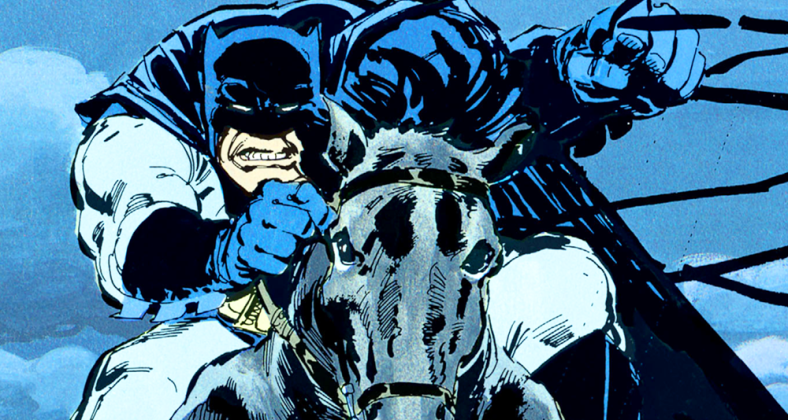
In an opinion that comes as little surprise given his political rhetoric in recent years, noted comic book writer Alan Moore has revealed that he considers fellow creator Frank Miller’s body of work to be too “sub-fascist” for his liking, particularly when it comes to his portrayal of Batman in his seminal work The Dark Knight Returns.
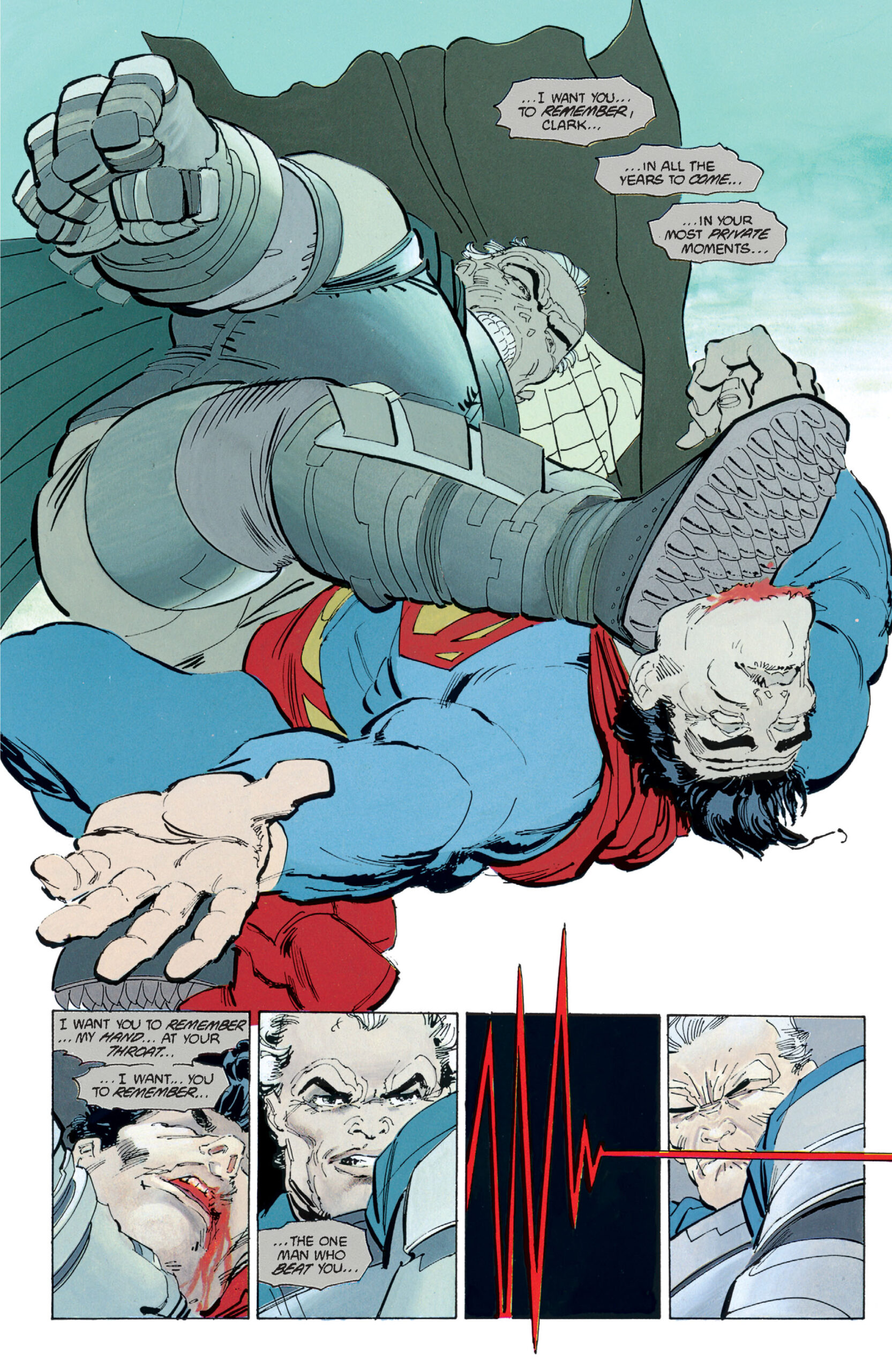
Batman beats Superman in Batman: The Dark Knight Returns Vol. 1 #4 “The Dark Knight Falls” (1986), DC Comics. Words and art by Frank Miller.
The Watchmen and Tom Strong creator shared his thoughts on Miller during an interview given to UK-based news outlet The Telegraph.
Speaking to the outlet’s Jake Kerridge in promotion of his short story collection Illumination‘s recent paperback reprinting, Moore opened about his liberal beliefs, beginning with a reflection on the fact that his “values system was formed in The Boroughs”, an English neighborhood which he describes as “the most impoverished area of Northampton”.
“Although it was destitute there was an astonishing sense of community – nobody would rob anyone else because nobody else had anything,” he recalled. “There was a kind of commonality.”
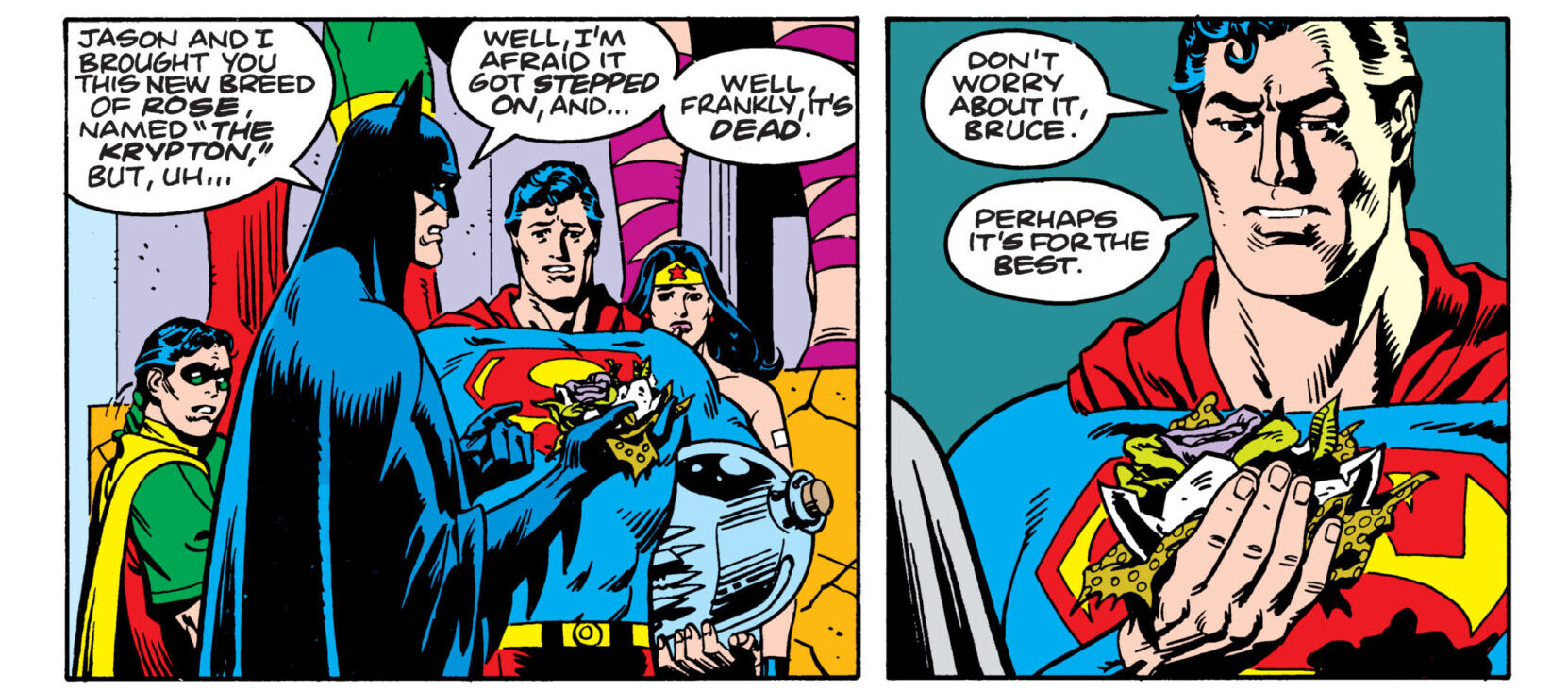
Batman gives Superman a birthday present in Superman Annual #11 “For the Man Who Has Everything” (1985), DC Comics. Words by Alan Moore, art by Dave Gibbons and Tom Ziuko.
Next met with the observation by Kerridge that his comic book works heavily featured said beliefs front-and-center, Moore then noted that, in this way, he felt himself the ideological opposite of the aforementioned Miller.
“[He has] a pretty sub-fascist vision even from the days of The Dark Knight,” said Moore. “It’s the idea of one man, perhaps on horseback, who can sort out this mess – that’s a bit too Birth of a Nation.”
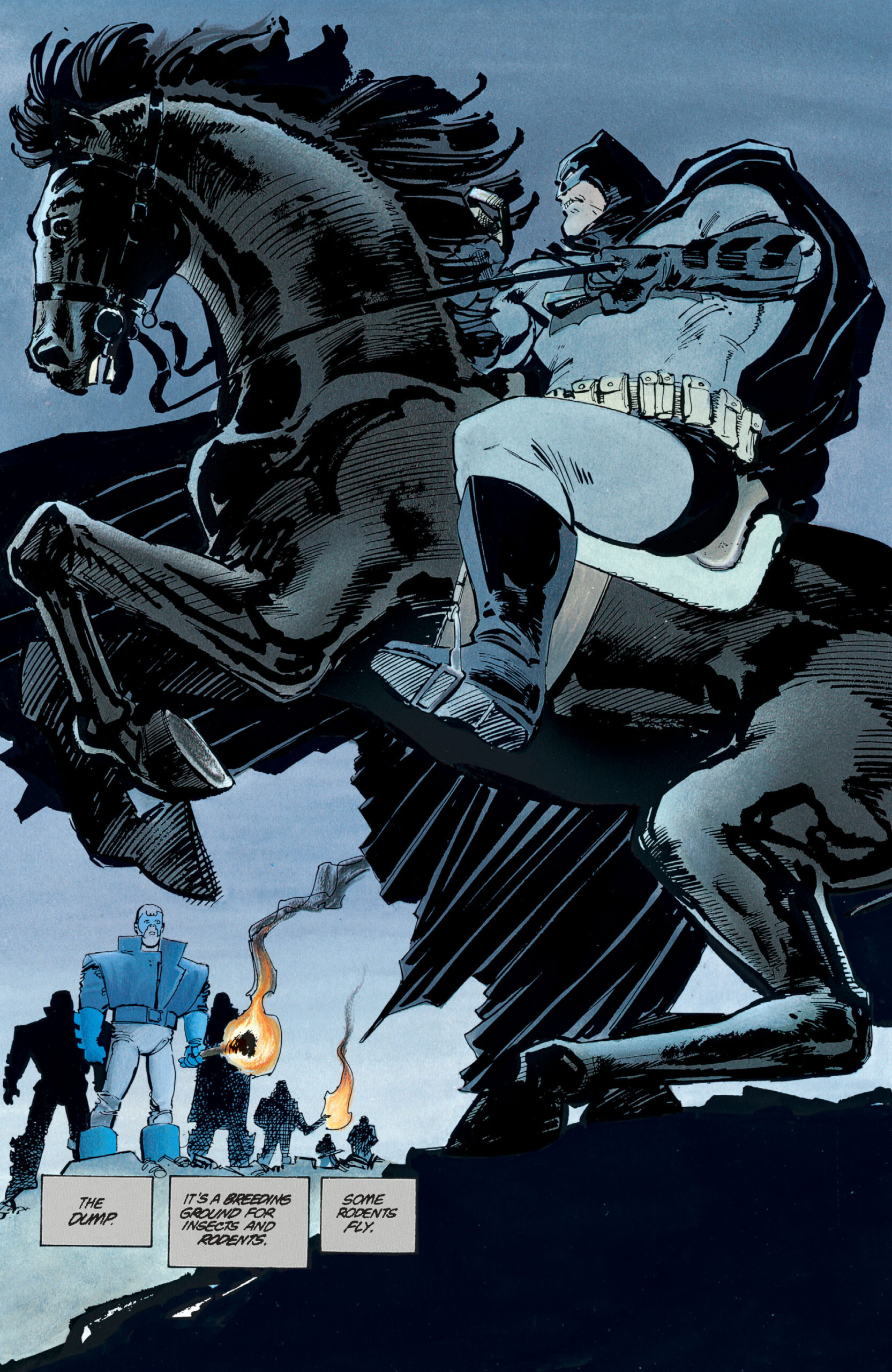
Batman rallies the Mutants in Batman: The Dark Knight Returns Vol. 1 #4 “The Dark Knight Falls” (1986), DC Comics. Words and art by Frank Miller.
A 1915 silent film adaptation of noted anti-black racist Thomas Dixon Jr.’s 1905 novel The Clansman: A Historical Romance of the Ku Klux Klan, The Birth of a Nation follows the story of two families, the Northerner Stonemans and the Southern-born Camerons, as their lives intersect amidst the politically- and racially- charged atmosphere of both the American Civil War era and the post-war Reconstruction period.
Considered a technical achievement in cinema for its impressive production values, The Birth of a Nation has remained a subject of controversy ever since release due to the fact that it accurately adapts Dixon Jr.’s work, warts and all, and in doing so presents the KKK as noble heroes fighting to save the United States from the ‘lesser’ and savage blacks.
Specifically, Moore seems to be drawing a parallel between Miller’s Dark Knight and the film’s Benjamin Cameron, a Confederate general whose subsequent rallying of a group of white South Carlolinans under the banner of the KKK is depicted as a virtuous, epic hero’s journey.
However, given that the only real shared qualities between Cameron and Batman is the fact that they rally a group of people who believe themselves oppressed and encourage them to take justice into their own hands – and that they at one point lead a horseback charge against their respective enemies – it seems Moore’s read of Miller’s take on the DC hero is superficial at best and reactionary at worst.
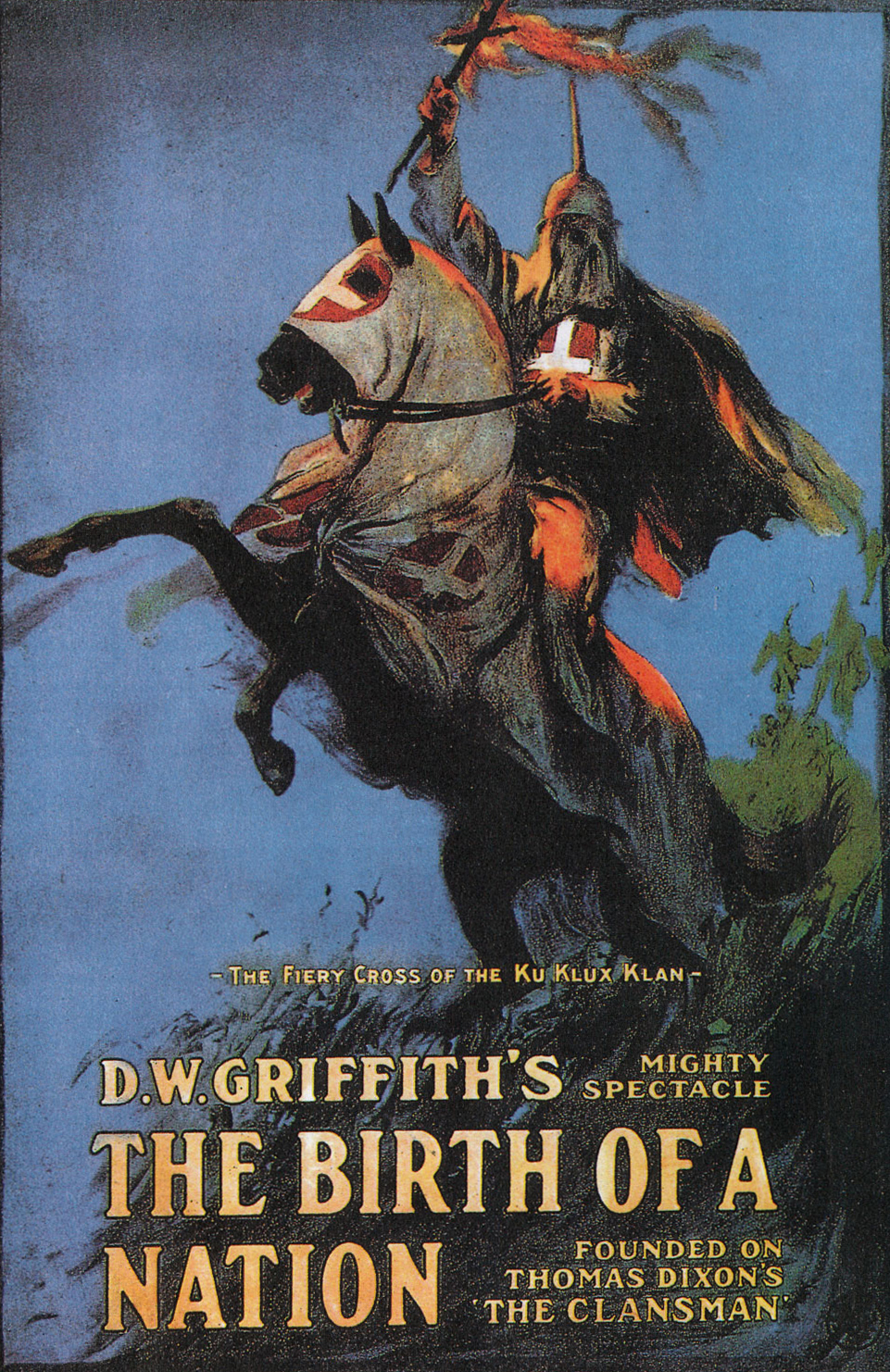
The original 1915 theatrical poster to D.W. Griffith’s The Birth Of A Nation (1915), David W. Griffith Corp.
Notably, this is not the first time Moore has drawn a connection between fascist ideology and comic books.
“I said round about 2011 that I thought that it had serious and worrying implications for the future if millions of adults were queueing up to see Batman movies,” the From Hell scribe told The Guardian in 2022. Moore. “Because that kind of infantilisation – that urge towards simpler times, simpler realities – that can very often be a precursor to fascism.”
In support of this argument, Moore noted that “when we ourselves took a bit of a strange detour in our politics” with the 2016 election of Donald Trump as president of the United States, most of the major films at the time were ones based on superheroes, such as Batman v. Superman: Dawn of Justice, Deadpool, and Captain America: Civil War.
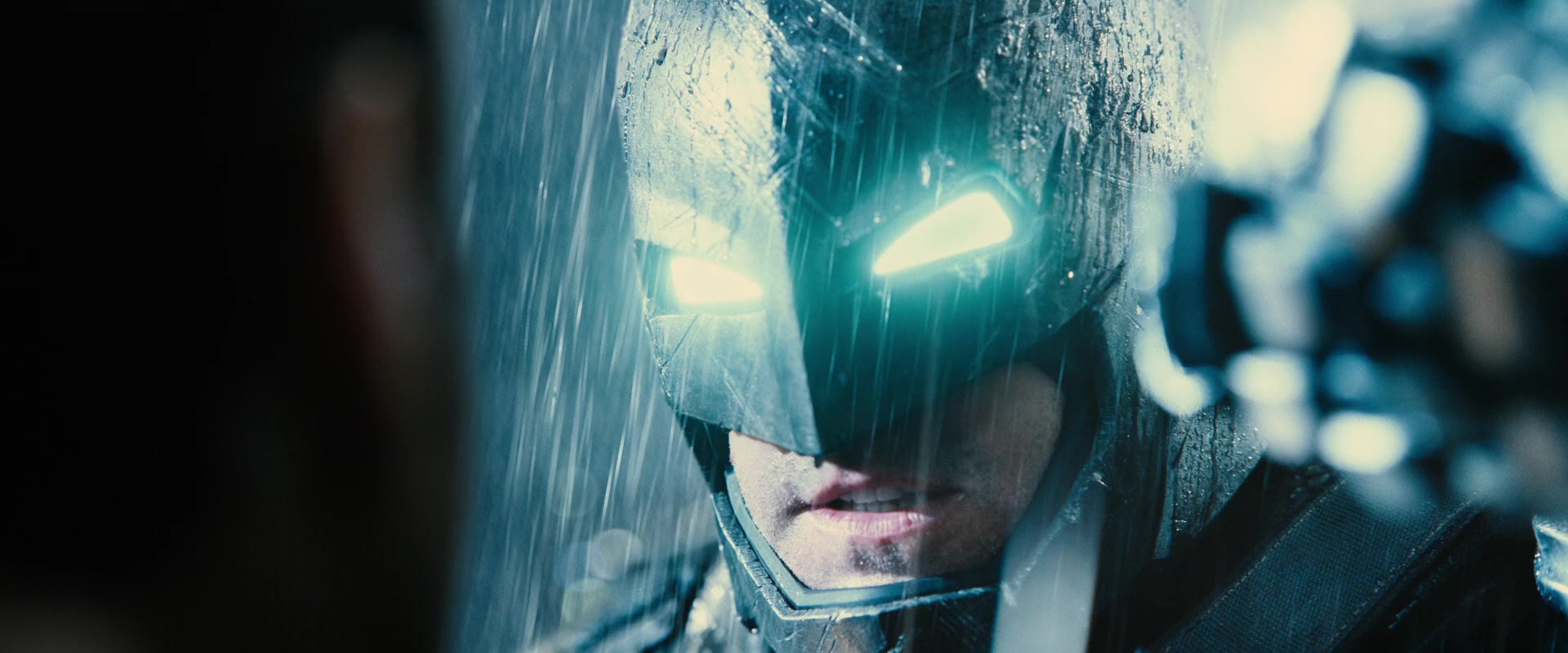
Batman (Ben Affleck) proves himself a match for Superman (Henry Cavill) in Batman v Superman: Dawn of Justice (2016), Warner Bros. Pictures
More About:Comic Books
